Sat 31 Jul 2010
Scott Pilgrim Vs. The August Recess
Posted by Ethan under Film Review, NYC Film Critic
Comments Off on Scott Pilgrim Vs. The August Recess
NYC Film Critic is taking an early August break, but before I go I’m leaving you with a batch of reviews for movies opening over the next two weeks, including my take on Edgar Wright’s much-anticipated (by me at least) Scott Pilgrim vs. the World, along with capsules of smaller releases like Get Low and Tirador. Last but not least, I’ve also included my mid-year status report listing my favorite movies of 2010 so far. As Scott Pilgrim might say, it’s an epic column full of epicness.
Scott Pilgrim vs. The World
Directed by Edgar Wright
Screenplay by Edgar Wright and Michael Bacall
Starring Michael Cera, Mary Elizabeth Winstead, Kieran Culkin, Jason Schwartzman
***1/2
You’ve seen this story before: boy meets girl, boy falls for girl, boy and girl deal with each other’s respective baggage, boy and girl come to an understanding, fade out, the end. But you haven’t seen that story told in a movie that’s quite like Edgar Wright’s Scott Pilgrim vs. The World, a witty and engaging romantic comedy that deftly marries typical cinematic conventions with comic-book and video game aesthetics. Based on a cult comic series written and illustrated by Bryan Lee O’Malley, Scott Pilgrim follows its titular character (Michael Cera, in one of his least Michael Cera-ish performances) as he falls for hipster chick Ramona Flower (Mary Elizabeth Winstead) and does battle with her seven ex-lovers in order to earn the right to continue seeing her.
As befits a 100-minute feature film based on a six-volume comic series, there are a number of other subplots crammed into the proceedings as well, ranging from Scott’s dalliance with easily impressionable high-school girl Knives Chau (Ellen Wong, a real find) to Ramona’s complicated history with her most recent ex, Gideon Graves (Jason Schwartzman). Even in its streamlined form, this is a very busy narrative and it might have benefitted from trimming away certain story threads and characters (like Scott’s snarky sister Stacey, an amusing, but rather pointless presence in the context of the movie) to devote more attention to the central relationship between Scott and Ramona, which never quite clicks. Cera and Winstead are both appealing actors, but the exact reasons for Scott’s attraction to Ramona—and more importantly her attraction to him—always remain somewhat vague.
For its sheer sense of spectacle alone though, Scott Pilgrim is a treat, featuring some of the best special-effects work I’ve seen this year as well as a playful approach to composition and editing that’s both hilarious and quite brilliant. Under the direction of Wright and his editors Jonathan Amos and Paul Machliss (who deserve serious consideration for the Best Editing Oscar this year), the movie doesn’t cut between scenes—it glides, linking shots together by a specific character’s movements, certain objects in the frame (doors and the like) or visual onomatopoeia. It’s a remarkable recreation of the effect of scanning the panels of a comic book. The video game influenced battle sequences are equally well realized, deliberately recalling every classic fighting game from Street Fighter II to Mortal Kombat to Tekken.
I suppose that one could make the argument that Wright is relying on all these visual flourishes to hide the fact that the material he’s working with is somewhat shallow. But the film’s style feels entirely appropriate to these specific characters and the way they view the world around them. Scott Pilgrim vs. The World is, at heart, a grand fantasy, which means that everything about it—the action, the emotions, the humor—is deliberately heightened. The success of the movie lies in Wright’s ability to make the fantasy believable, in much the same way that Peter Jackson convinced audiences that there was such a place as Middle Earth and the Wachowski Brothers thrust them into the Matrix. In the world Wright creates, it makes sense that Scott Pilgrim is able to trash his enemies with elaborate 64-hit combos and that Amazon.com delivery girls can take shortcuts through passageways located in a person’s subconscious. Granted, not every viewer will be willing or able to accept Scott Pilgrim’s version of reality but those who do will want to kick off their shoes, crank up the indie rock, pick up a video game controller and stay awhile.
Scott Pilgrim vs. the World opens in theaters on August 13.
———————————————————————————————————————————————-
Get Low
Directed by Aaron Schneider
Screenplay by Chris Provenzano and C. Gaby Mitchell
Starring Robert Duvall, Bill Murray, Lucas Black, Sissy Spacek
***
Best appreciated as a late-career star vehicle for the effortlessly charismatic Robert Duvall, Get Low is a leisurely-paced period comedy that meanders its way to a destination that you wish was more interesting than it turns out to be. But when you’ve got Duvall and a supporting cast that includes reliable screen veterans like Bill Murray (whose wry sense of humor is in top form here), Sissy Spacek and Bill Cobbs as travelling companions, it’s easy to sit back and enjoy the journey…provided you have a high tolerance for Dixieland whimsy. Loosely based on a true story, the film introduces us to the haggard hermit Felix Bush (Duvall), who approaches the proprietor of his small town’s sole funeral parlor (Murray) with a unique demand: he wants a funeral party thrown in his honor before he dies. While Bush insists that he’s just doing this for a lark, it quickly becomes clear that he’s hiding some dark secret that he’ll inevitably have to reveal in front of the townspeople that he’s shunned—and who have shunned him—for much of his life. When the big moment finally occurs, it’s somewhat anticlimactic, but Duvall carries the scene off with the same grace and authority that he displays throughout the rest of the movie. It’s a rich, deeply felt performance in a film that doesn’t have a lot going on beneath the surface.
Get Low opened in limited release on July 30 and will expand to more cities over the next few weeks.
———————————————————————————————————————————————-
Spoken Word
Directed by Victor Nunez
Screenplay by William T. Conway and Joe Ray Sandoval
Starring Kuno Becker, Rubén Blades, Miguel Sandoval and Persia White.
**
Earnest and well-meaning to a fault, Victor Nunez’s drama about a bipolar poet (Kuno Becker) who returns to his hometown in New Mexico after receiving word that his father (Rubén Blades) is dying, feels like the kind of movie that might have made more of an impression had it played at Sundance back in the early ‘90s. These days though, we’ve seen too many variations on this familiar narrative—particularly in the indie film world, where each year seem to bring forth a number of films about a person returning to the town he or she left behind—so a movie has to offer something really special to make it seem fresh.  And Spoken Word unfortunately feels like too much of the same thing. Nunez and his cast handle the material adequately, but there are no standout performances or intensely powerful dramatic moments that send you out of the theater buzzing. In fact, the film’s most memorable character is the beautiful New Mexico scenery. Instead of capturing the fiery intensity of the central character’s own spoken word poetry, Spoken Word remains stately, low-key and more than a little dull.
Spoken Word opened in limited release on July 23 and expands to more theaters in August.
———————————————————————————————————————————————-
Tirador
Directed by Brillante Mendoza
Story by Ralston Jover
Starring Jiro Manio, Coco Martin, Kristofer King and Nathan Lopez.
***
I have yet to catch up with prolific Philippines-based director Brillante Mendoza’s two most controversial works, the porn-theater set Serbis and the Cannes award- winner Kinatay, which reportedly depicts a murder in grueling detail. But I have had the chance to see his slice-of-life stories Lola (which premiered overseas in 2009 and played at the Tribeca Film Festival earlier this year) and now Tirador, a 2007 feature that’s just now getting a limited stateside release. Like Lola, Tirador is a fictionalized fly-on-the-wall look at a Philippines slum centered around a mix of characters who do what they have to in order to get by in this difficult environment. There’s a group of school kids who attempt run a scam on a fellow student, a couple that earns cash by swiping DVD players and other electronics from hapless merchants and a guy trying to keep the local repo men away from his rented rickshaw. Tirador does suffer somewhat from the lack of a strong unifying presence like Lola’s main character, an elderly grandmother trying to raise enough money to give her murdered son a proper funeral. But both movies offer an absorbing and remarkably even-handed depiction of life on the lower rungs of this country’s society. Mendoza doesn’t vilify these people or try to sentimentalize them—he simply invites us into their world and allows us to make up our own minds.
Tirador opened in New York on July 23.
———————————————————————————————————————————————-
Summer Pasture
Directed by Lynn True and Nelson Walker
***
The Tibetan grasslands serve as a remarkable backdrop for this portrait of a family of nomads attempting to carry on a way of life that’s slowly but surely disappearing. Filmed over the course of one summer season at the pasture of married couple Locho and Yama, the documentary captures the rhythm of their everyday lives, while also getting them to open up about their hopes for the future and memories of their tumultuous past. (Among the traumatic events that they’ve had to endure include illness, infidelity and the death of two infant children.) Directors Lynn True and Nelson Walker really lucked out when they picked this pair as the subjects of the film; whenever the filmmakers steer close to romanticizing their existence—dwelling on the beautiful place they inhabit and the freedom that comes with not having a 9-5 work schedule—Locho and particularly Yama are quick to puncture that balloon, forcefully stating how hard nomadic life is. In fact, towards the end of the film, Locho—who frequently mentions his disappointment with his lack of education—suggests that they’ll likely leave the grasslands behind for city life when their infant daughter is ready to begin school. I, for one, would love to see True and Walker return to Tibet a few years from now to find out whether this likable couple traded their yurt for a home with four walls or if they’re still among the dwindling number of nomads living off the land. Â
Summer Pasture opened in New York on July 30 and will open in Los Angeles on August 6 as part of the International Documentary Association’s 14th Annual DocuWeeks program.
———————————————————————————————————————————————-
The Disappearance of Alice Creed
Directed by J Blakeson
Starring Gemma Arterton, Martin Compston, Eddie Marsan
***1/2
British writer/director J Blakeson makes a promising feature debut with this chamber room thriller, set almost entirely in a small two-room apartment on the outskirts of London. Ex-cons Vic and Danny (Eddie Marsan and Martin Compston) have rented the flat in order to pull off a get-rich-quick scheme; they’ll kidnap the daughter of a wealthy businessman and force him to fund their lengthy beachside vacation. The target they settle on is one Alice Creed (Gemma Arterton), who isn’t exactly on speaking terms with her old man. Do I even have to mention that the operation doesn’t go according to plan? Expertly plotted by Blakeson, the movie offers up a fresh plot twist every twenty minutes or so, all of which deepen the characters’ backstories, making their relationships more compelling and complex. Thankfully, these revelations all make dramatic sense as well–Blakeson doesn’t put his desire to surprise the audience ahead of the story’s internal logic. The Disappearance of Alice Creed achieves a tense energy that many thrillers with ten times its budget and number of locations lack.
The Disappearance of Alice Creed opens in limited release on August 6.
———————————————————————————————————————————————-
My Perestroika
Directed by Robin Hessman
****
Robin Hessman’s beautifully crafted documentary examines the past thirty years of Russian history—during which the Soviet Union collapsed and the present-day Russian Federation took its place—through the eyes of five men and women who grew up during those tumultuous times. Among Hessman’s subjects are a husband and wife who were members of Communist Youth organizations as children and now teach history at a local public school; an ex-punk rocker who quit the music business and gets by on odd jobs; a successful businessman who has profited enormously from the country’s move from communism to capitalism; and a single mother working hard to put food on the table. My Perestroika clocks in at a swift 87 minutes and, truth be told, it could have been longer; certain historical events are glossed over and Hessman leaves out some significant personal details about her subjects that would have been fascinating to explore. But her achievement here—and it’s an impressive one—is finding a compelling way to balance political history with social history to present a fully-realized portrait of one country’s startling transformation.
My Perestroika will open in Los Angeles on August 6 and New York on August 13 as part of the International Documentary Association’s 14th Annual DocuWeeks program.
———————————————————————————————————————————————-
Status Report: The Best Films of 2010 So Far (Links to full reviews where available.)
1. Exit Through the Gift Shop
2. My Perestroika
3. A Prophet
4. Please Give
5. Stonewall Uprising
6. Toy Story 3
7. The Disappearance of Alice Creed
8. The Killer Inside Me
9. Scott Pilgrim vs. the World
10. Inception
Honorable Mentions (In alphabetical order. Links to full reviews where available.)
Agora
Centurion (Opens August 27; review forthcoming)
Dogtooth
Everyone Else
Greenberg
The Kids Are All Right
I Am Love
Mother
The Red Riding Trilogy
Soul Kitchen (Opens August 20)
Shutter Island
Winter’s Bone
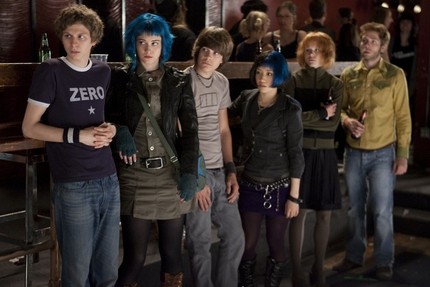
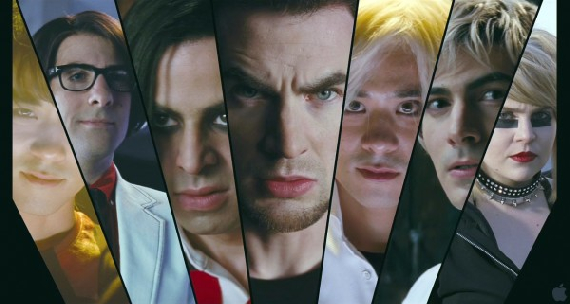
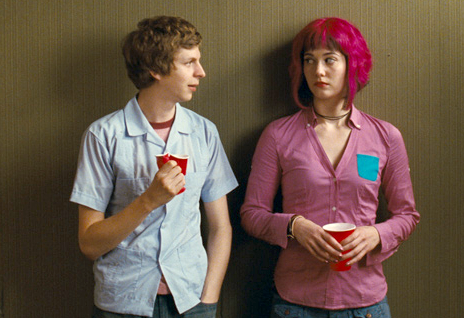
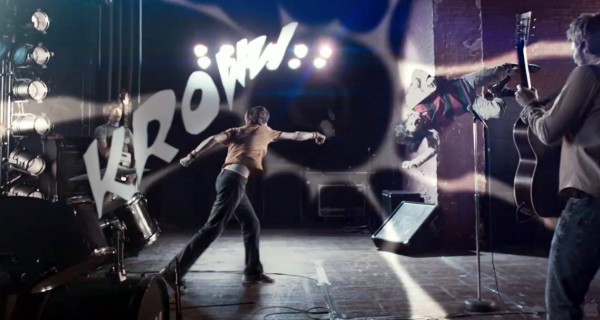
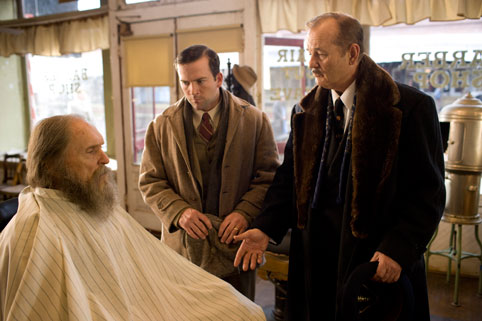
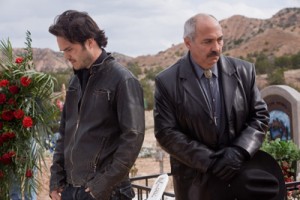

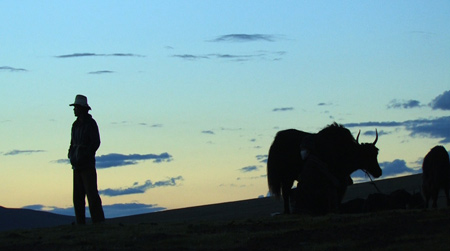
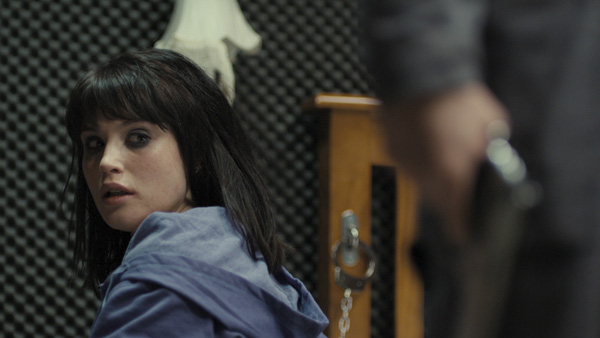

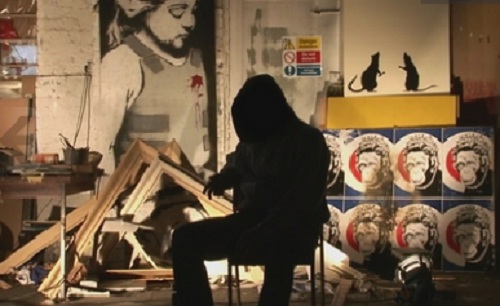

No Responses to “ Scott Pilgrim Vs. The August Recess ”
Sorry, comments for this entry are closed at this time.